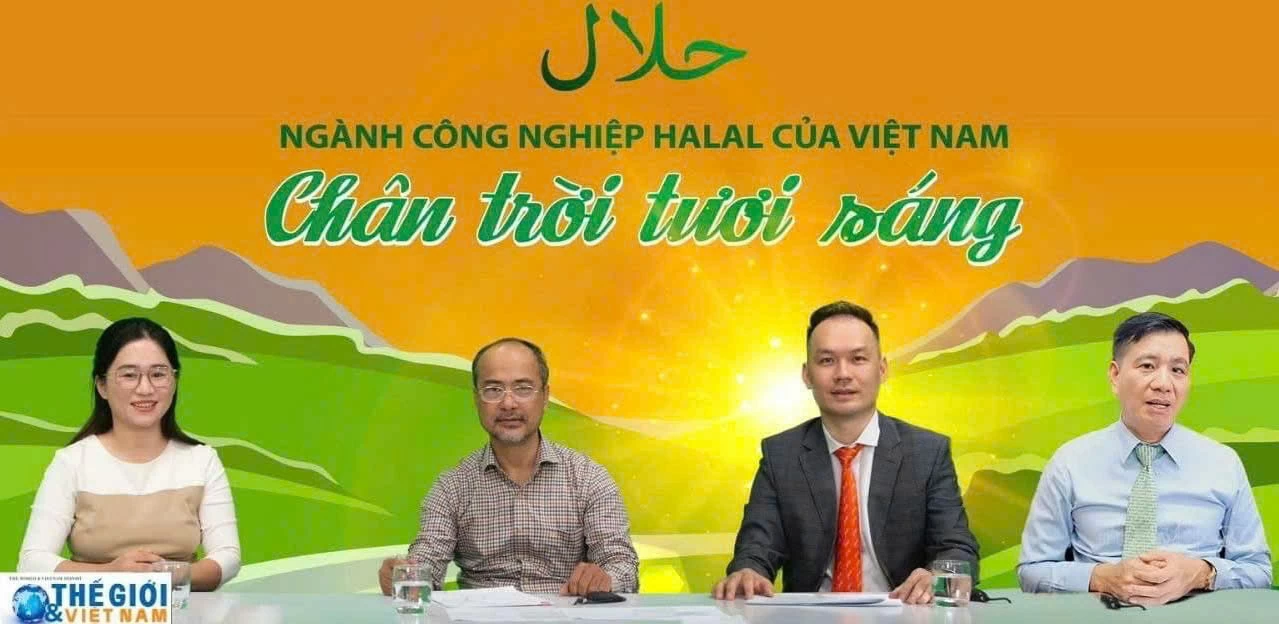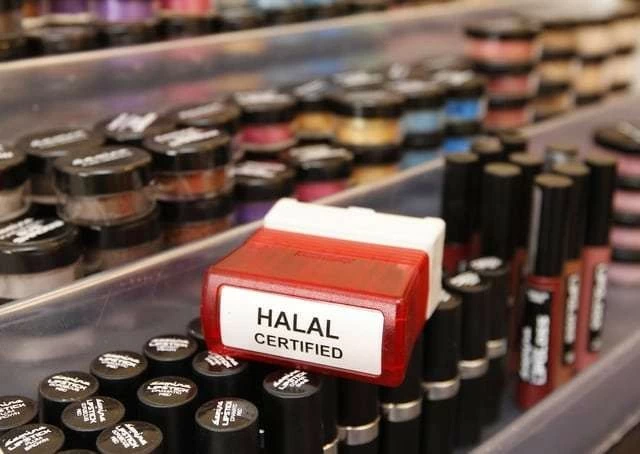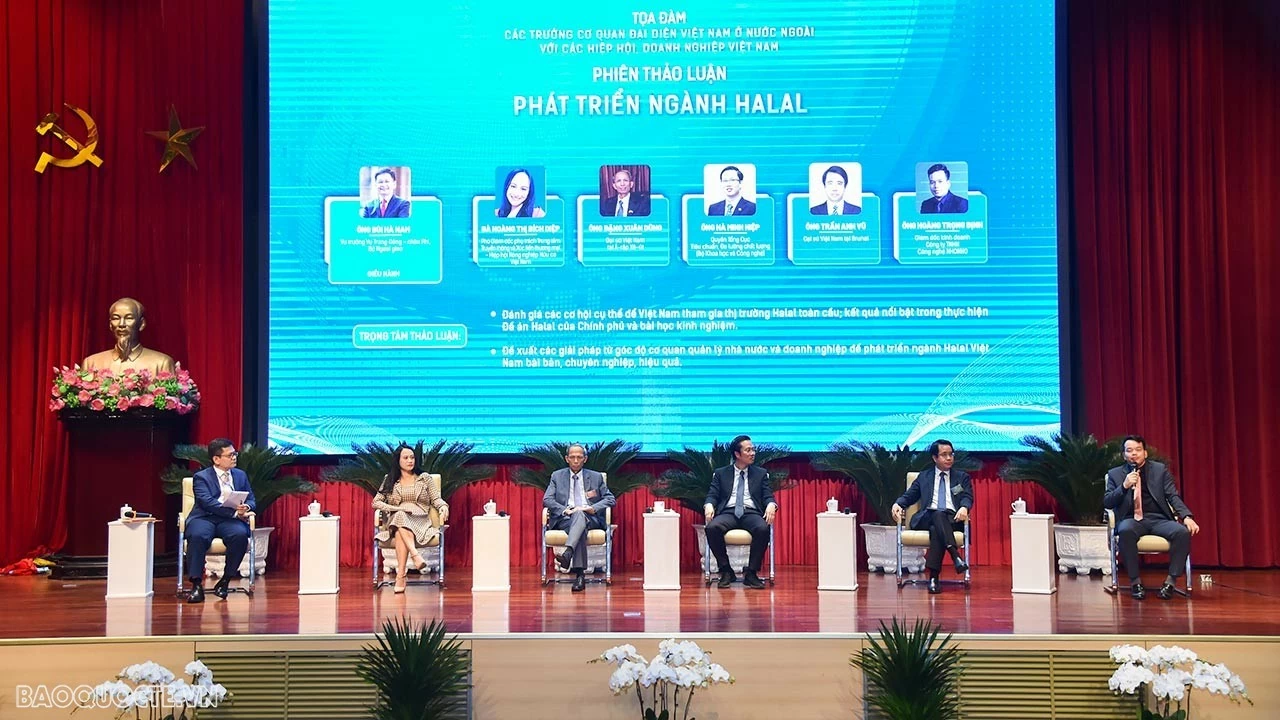
Halal Vietnam - A Bright Horizon (Part I): Unknown facts about the trillion-dollar market
Latest
 |
| The delegates attended the talk show "Halal Vietnam - A Bright Horizon" organized by The World and Vietnam Report (Photo: Anh Tuan) |
According to various forecasts, the global Halal product market is expected to reach over $7 trillion by 2025 and could grow to $10 trillion by 2027.
Recently, Vietnam has started paying more attention to the Halal market. The project “Strengthening International Cooperation to Build and Develop Vietnam’s Halal Industry by 2030” has been approved by the Prime Minister, showing that we are on the right track. The project outlines major national-level strategies for mobilizing international resources to comprehensively build and develop Vietnam's Halal industry, helping Vietnamese businesses deeply and effectively participate in the global Halal production and supply chains.
The Identity and Brand of Muslims
Mr. Nguyen Trung Kien, former Ambassador of Vietnam to Austria and former Director of the Department of Middle East and Africa, commented that this is the first time the Vietnamese government has implemented a project on the Halal industry.
From the business perspective, the Vietnamese business community is dynamic and creative, with some companies pioneering Halal product exports. However, with a government-level project, the Halal sector will involve the entire foreign affairs sector and all domestic production industries, marking a new opportunity.
According to Mr. Nguyen Trung Kien, Halal is a broad field that includes human consumption products related to food, cosmetics, pharmaceuticals, etc., all built on a standard based on Islam's religious beliefs. This standard is applied throughout the entire process from production, processing, distribution, and consumption, and therefore, it has a very large scope of influence.
"When I started exploring ways to help businesses access the Halal market, I always found it fascinating because it combines religious beliefs, hygiene and food safety standards, production, and consumption market access. Halal also involves a chain of processes across different countries and legal systems, so there are always challenges and difficulties," Mr. Nguyen Trung Kien expressed.
Elaborating on Halal, Assoc. Prof. Dr. Dinh Cong Hoang, Head of the Middle East and West Asia Research Department, Institute for South Asia, West Asia, and Africa Studies, stated that Halal means permitted or lawful in Arabic. Initially, Halal was often applied to livestock and poultry meat and involved slaughtering methods according to Islamic beliefs.
Later, the concept of Halal was extended to other products, such as non-meat items. Today, Halal is applied to all aspects of human life. Therefore, the Halal logo has become a symbol of identity and a distinctive Muslim brand.
In terms of faith, Assoc. Prof. Dr. Dinh Cong Hoang emphasized that this is a crucial feature of the Halal market. "It’s a belief in transparency, integrity, and the complete adherence to Halal. The production processes from farm to table, from the input food supply to slaughter, processing, transportation, and consumption, must all strictly follow the Halal standards," he shared.
In terms of its meaning, Halal also refers to purity in conscience and behavior, ethical choices, and daily lifestyle.
Currently, the social issues of concern are organic agriculture, fair trade, food safety, humane treatment of animals, and environmental care. Therefore, the Head of the Middle East and West Asia Research Department believes, "With these progressive values, Halal is gradually being accepted and adopted, becoming a lifestyle not only in Islamic countries but also others."
 |
| The quality of Halal certification for products and services in Kazakhstan. (Source: Astana Times) |
This is a good opportunity for Vietnam to raise agricultural quality standards
Assoc. Prof. Dr. Dinh Cong Hoang also noted that the market size is remarkable. It has a population of 2 billion people and is valued at 7,000 to 10,000 billion USD, with rapid growth. This is a highly potential market with diverse sectors. However, it is regrettable that Vietnam has not yet made significant inroads into this market.
The Vietnamese Ambassador to Malaysia, H.E. Dinh Ngoc Linh, also acknowledged that Halal is a comprehensive concept of a product's process in Malaysia. The country has elevated the concept of Halal into a Halal ecosystem, aiming to make these products accessible to various social strata.
"Currently, about ten countries are exporting Halal products worldwide, but surprisingly, the top five are not Muslim-majority countries. On the Vietnamese side, let's note that besides religious objectives, Halal requirements may increase production and management costs to meet Halal demands," said the Vietnamese Ambassador to Malaysia.
 |
| Dialogue between Heads of Vietnamese Representative Agencies Abroad with Associations and Enterprises on Developing and Participating in the Global Halal Market within the framework of the 32nd Diplomatic Conference, December 2023. (Photo: Anh Son) |
Having engaged with Halal early, Ambassador Nguyen Trung Kien believes that Halal is a broad concept, and each perspective leads to different approaches. From the state management perspective, Mr. Nguyen Trung Kien realized that it requires the involvement of many ministries and sectors, but this also results in overlap between agencies. "This is when the Ministry of Foreign Affairs and economic diplomacy need to step in," he said.
He recalled that at one point when trying to find ways to support Vietnamese businesses in developing the Halal industry, there were no identified stakeholders. At that time, Deputy Prime Minister and Minister of Foreign Affairs Bui Thanh Son - then Deputy Minister of Foreign Affairs in charge of economic diplomacy - boldly collaborated with the Ministry of Agriculture and Rural Development to highlight the Halal issue, attracting the government's attention.
At present, the project "Enhancing International Cooperation to Build and Develop the Vietnamese Halal Industry by 2030" clearly states that the Ministry of Foreign Affairs will strengthen international cooperation to support the building and development of the Halal industry.
Mr. Nguyen Trung Kien affirmed: "Halal starts from businesses, so businesses must be the center, the pioneer, and the final beneficiary. How should we help businesses access the Halal market in the coming time? Halal product certification is the 'passport' to bring goods into Halal markets. State agencies need to assist businesses in obtaining certification early, setting up processes to achieve certification, and increasing competitiveness compared to Halal-producing countries.
Not only is it an opportunity for businesses, but Mr. Nguyen Trung Kien also sees this as a good chance for Vietnam to elevate agricultural standards. Vietnam has a robust agricultural sector, which is the country's backbone. Therefore, to develop agriculture, we must adopt higher and stronger standards to protect consumers and producers. The Halal standard is a prime example of how to enhance and build product standards.









